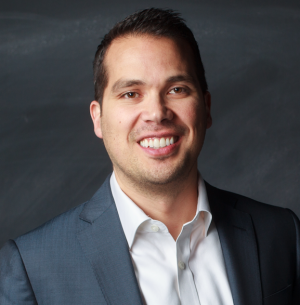(Image via Getty)
With dramatic shifts in the legal market, law firms, in-house legal departments, and alternative legal service providers (ALSPs) are increasingly turning to freelance lawyers and paralegals to build their workforce. In turn, lawyers and paralegals may find their careers increasingly including contract and freelance work.
This new world can feel overwhelming with a new legal marketplace concept popping up every month. To add to the confusion, some of these marketplaces are focused on helping consumer clients locate attorneys in violation of fee-sharing rules while others offer only independent contractor services which can cause penalties for improper worker classification and wage-and-hour claims.
Here’s a breakdown of the four basic legal staffing concepts on the market to help candidates and clients sort through this new landscape, ensure compliance, and pick the concept that works best for their law practice or career,
Staffing Solutions
1. Brick & Mortar Staffing Agencies: Traditional and “new law” concept staffing firms can help with direct and contract hiring services. These provide full payroll and employment compliance as well as professional liability insurance specific to staffing that adds an extra layer of protection for hirers and contractors. Further, the ABA model rules adopted by the majority of jurisdictions permit staffing services as not in violation of fee sharing. The downside is, brick and mortar agency processes tend to be less transparent and more manual, time-consuming, and expensive than online options. Candidates may find recruiters who are tasked with executing these manual processes and staffing many roles simultaneously are not responsive and hirers may not like the friction and time required to interface with a recruiter to access and communicate with candidates.
Benefits:
- Dedicated recruiters
- In compliance with Model Rules of Professional Conduct
- Payroll and employment compliance services
- Temp and direct-hire options
- Ability to meet a wide range of staffing needs, including specialized and non-attorney roles
Limitations:
- Fees tend to be higher than modern staffing solutions
- Non-transparent fee structures that may vary from project to project (or candidate to candidate)
- Some can find it clunky and time-consuming to go through a recruiter to connect with and communicate with candidates
- New Law staffing agency concepts that focus on attorneys with Fortune 500 and Am Law backgrounds can have rigid hour and length requirements requiring hirers to commit to 20-40 hours on a multi-month basis
2. Boutique Freelance “Platforms”: These services often call themselves marketplaces or platforms. They generally contain a marketing website through which a point person is contacted, much like an agency. These concepts offer independent contractor services without payroll and professional liability insurance. While they lack the services and compliance of agencies, often the fees are lower and more transparent and they also tend to offer more experienced and specialized attorneys.
Benefits:
- Ability to connect with attorneys for a project basis
- License and identity verification
- High-touch, manual experience for the tech-adverse
- Fees generally lower for 1099 work than traditional agency concepts
- Focus on more experienced, specialized attorneys
Limitations:
- No payroll or employment compliance services
- No paralegals or junior or entry-level resources
- No professional liability insurance as provided by a staffing agency
- High-touch, manual experience that results in longer turnaround time
- Just as with a traditional agency, it can be clunky and time-consuming to go through a recruiter to connect with and communicate with candidates
3. Lawyer Marketplaces: These marketplaces allow attorneys and hirers to search for and connect with one another without the friction and time of going through a recruiter. Most do a basic bar license verification. These primarily offer 1099 independent contractor services and many disclaim responsibility as a staffing agency and related employment compliance responsibilities and guarantees of contractors. Also, to be compliant with model rules as a non-agency “marketplace,” the attorney should technically be working in a clerk or “paraprofessional” capacity.
Benefits:
- Ability to connect with attorneys to provide assistance with legal writing and drafting projects
- Direct access and communication with candidates
- Basic license and identity verification
Limitations:
- No payroll or employment compliance services
- Limited vetting and screening of candidates
- Many have smaller pools of attorneys and track records
- No professional liability insurance as provided by a staffing agency
- Most specifically disclaim they are a staffing agency and the related responsibilities and there are little if any guarantees provided on contractors or payment to contractors
- As a marketplace and non-staffing service — attorneys must work as paraprofessionals to stay compliant with Model Rules of Professional Conduct
- Questionable compliance with Model Rules of Professional Conduct for those offering services to the general public
- With some, a project has to be flat rate which can cause a lack of flexibility for hirers and can cause scope creep for contractors after they’ve agreed to a defined price
4. Data-Driven, On-Demand, Online Legal Staffing Agency: This model combines technology-driven, on-demand convenience with all of the benefits of a staffing agency. It provides thorough vetting, payroll, employment, and professional responsibility compliance benefits along with professional liability coverage. This is the only concept to use established research on Psychometrics (aka “Moneyball for legal hiring”) to predict candidate performance and fit for a role. Currently, Hire an Esquire is the only online concept to provide the services of an agency and on-demand convenience of a technology platform and the only online or offline agency to provide a soft-skill analysis.
Benefits:
- Instant matches upon job posting (72 percent of jobs are filled as a result of these instant matches)
- The largest online network of legal professionals, including over 2 percent of the U.S. attorney population
- A wide variety of jobs for candidates as well as job recommendations and notifications when a role fits their skillset
- License and identity verification
- Thorough candidate vetting that includes soft skill analysis based on established Psychometrics on predicting workplace performance
- Candidate selection enabled via easy via proprietary Job Fit scores based on “Moneyball” for legal hiring from proven research
- Vetting of clients to ensure clients are staffing service clients in compliance with the Model Rules of Professional Conduct
- Direct access to and communication with candidates
- Full payroll and employment compliance services
- W2, 1099, and direct hire options available
- A wide range of contractors, from highly skilled senior attorneys to mid-level associates, junior attorneys, document reviewers, and paralegals
- Compliant with Model Rules of Professional Conduct
- Transparent hourly or flat fees available
Limitations:
- Must have a supervising attorney on staff and be a law firm, in-house legal department, or legal services company
And, we’ve put together this chart to give you a side-by-side comparison:
 Happy staffing!
Happy staffing!



 Lyle Moran is a freelance writer in San Diego who handles both journalism and content writing projects. He previously reported for the Los Angeles Daily Journal, San Diego Daily Transcript, Associated Press, and Lowell Sun. He can be reached at
Lyle Moran is a freelance writer in San Diego who handles both journalism and content writing projects. He previously reported for the Los Angeles Daily Journal, San Diego Daily Transcript, Associated Press, and Lowell Sun. He can be reached at 

 Kathryn Rubino is a Senior Editor at Above the Law, and host of
Kathryn Rubino is a Senior Editor at Above the Law, and host of 






 Jordan Rothman is a partner of
Jordan Rothman is a partner of 




